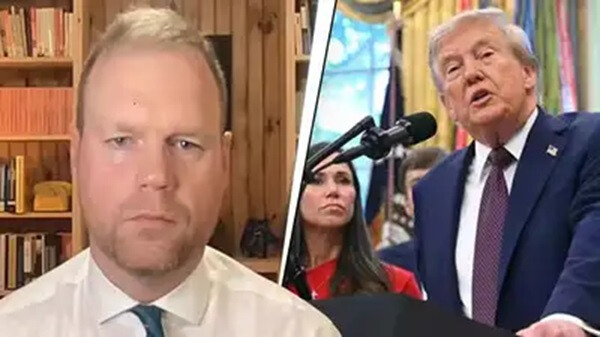
NEW YORK — A leading U.S. political economy professor has sharply criticized the Trump administration's decision to impose a 50% reciprocal tariff on India, calling it a strategic blunder that should be immediately reversed. The tariffs, reportedly a retaliatory measure over India's continued import of Russian oil, have drawn condemnation from Dr. Edward Price of New York University (NYU).
In an interview with the Indian news agency ANI, Dr. Price called the tariffs a misguided move and stated, "We should bring the tariffs on India down to something much more reasonable. I propose that [President Trump] reduce the tariffs on India to zero percent and apologize to India."
According to Dr. Price, the U.S. must recognize the unparalleled importance of its relationship with India in the 21st century. He emphasized that the dynamics between the two nations are crucial and will influence developments related to both China and Russia. "India is playing a decisive role in international affairs and will be an even more important player in the coming future," he stressed. He expressed surprise that the Trump administration would risk this vital partnership by imposing such heavy tariffs, especially while the U.S. is navigating complex relationships with China and Russia.
Dr. Price also praised Indian Prime Minister Narendra Modi's balanced approach to global politics. He highlighted that India's decision not to fully align with either China or Russia demonstrates its strategic independence, a lesson the U.S. should heed. He specifically pointed to PM Modi's absence from a recent Victory Day military parade in Beijing as evidence of India's non-aligned stance. This decision, Dr. Price argued, reflects India's sovereign mindset and its refusal to be drawn into any single power bloc.
Dr. Price further stated that India, as a sovereign nation, will remain independent and never permanently align with any external power. He contrasted this with Russia's current position, asserting that Russia's efforts to rebuild a Soviet-era sphere of influence are fundamentally flawed. Dr. Price noted that while Russia is currently cooperating with China, India under PM Modi has maintained its independence and has not been drawn into China's orbit. "India is a sovereign country with its own civilization and an independent mindset. It makes its own choices and doesn't permanently cast its lot with one side or the other," he explained.
He added that India's actions are particularly informed by observing events in Russia, which he described as a form of "economic conquest" by China. While he did not elaborate on the specific details of this "conquest," his comments underscore a broader academic concern about India's autonomy.
The professor's call for a reversal of the tariffs and an official apology highlights growing concerns within U.S. academic circles regarding the potential damage to the U.S.-India relationship. Many believe that strong ties with India are essential for U.S. geopolitical strategy, particularly as a counterbalance to China's rising influence.
[Copyright (c) Global Economic Times. All Rights Reserved.]




























